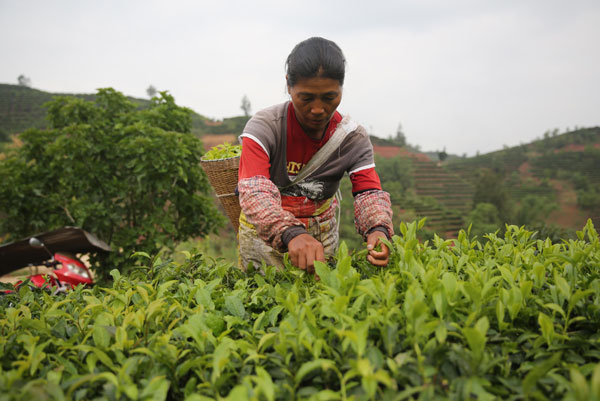Joe Simrany, president of the Tea Association of the USA, said Chinese tea farmers and producers must promote themselves overseas as well as the Chinese tea culture.
"Considering the high cost, China should focus on supporting several specialty teas in cooperation with local and international media. Fabulous stories about tea history and the production process in scientific approaches will be attractive for foreign consumers," she said.

May is a busy season for tea farmers in Pu'er, Yunnan, to pick tea. Liang zhiqiang / for China DAILY
Simrany said consumers also want to know where the tea was grown.
"In videos or newspapers, the wild and open fields for tea planting will attract more consumers as many foreigners are heavily concerned with food safety, including that the tea must be clean and healthy," Simrany said.
Shen, deputy governor of Yunnan, said China's tea industry is less competitive in global markets because it does not have big companies that are strong enough to compete outside China.
Yunnan is home to China's largest tea farms, covering 387,000 hectares, and produces 270,000 metric tons of tea a year.
However, the province has only 20 tea companies that can reap a yearly revenue of at least 100 million yuan ($16 million), he said. The province has another 118 tea companies with annual sales of at least 10 million yuan, he said.
"Many tea companies' products are similar to each other and fail to cater to various consumer needs," Shen said.
Shen said Yunnan and other major tea producing areas in China should diversify tea varieties in line with local conditions.
"Yunnan's goal is to create an industry of at least 100 billion yuan of annual revenue to restore China's leading role in the international tea market," Shen said.
Tea originated in China, which in ancient times dominated the global market.
